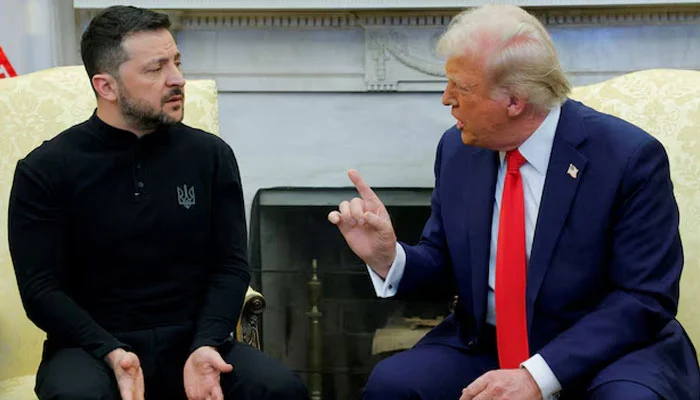Israeli warplanes have bombed areas near three hospitals in the Gaza Strip, including Al-Shifa and Al-Quds Hospitals in Gaza City and the Indonesian Hospital in the north, though the extent of the damage is yet to be determined.
According to the director of the Indonesian Hospital, the Israeli bombardment caused “serious damage and injuries,” but he did not provide further details.
The Palestinian Red Crescent Society stated on October 14 that Israel had ordered them to evacuate Al-Quds Hospital, but the group said it was not possible to move the sick and wounded.
A senior doctor in Gaza warns that many infants relying on ventilators would not survive an interruption of electricity. Dr Fu’ad al-Bulbul, head of the neonatal department unit at Al-Shifa Hospital, stated that such a situation would be “catastrophic”.
“Most of (the) babies depend(ing) on ventilators will die because we can save only one (or) two babies but, we cannot save all babies,” he said.
The UN agency aiding Palestine refugees (UNRWA) has warned that its fuel reserves will deplete in three days, posing a threat to humanitarian efforts in Gaza. The nursery at Al-Shifa Hospital, which has 45 incubators, primarily cares for preterm babies from high-risk pregnancies, according to Al-Bulbul.
“Unfortunately, at the moment we have not any medical supply — the essential drugs which is essential drugs as lifesaving for baby in the first two hours of life,” he said.
Highlighting the severe shortage of essential medicines, the doctor revealed they had run out of surfactant and had used their last vial of caffeine citrate on Sunday.
The unit is overwhelmed with caseloads, most infants are critically ill and the medical team has worked 18 straight days, leaving them exhausted, he added.

More Palestinians martyred as Israel steps up strikes on Gaza
Scores of Palestinians were martyred in central Gaza on Sunday after Israel stepped up its strikes on the war-torn enclave and another convoy of 17 aid trucks arrived as the Hamas-run territory faces “catastrophic” shortages.
With the violence raging unchecked, Iran said the region could spiral “out of control”. Israeli Prime Minister Benjamin Netanyahu issued a stark warning to Lebanon’s Hezbollah, saying getting involved would be “the mistake of its life”.
Washington warned any actors looking to inflame the conflict that it would not hesitate to act in the event of any “escalation”.
Hamas fighters in Gaza stormed across the border into Israel on October 7, launching a raid that killed at least 1,400 people, mostly civilians, according to Israeli officials.
They also seized more than 200 hostages in the worst-ever attack in Israel’s history.
Israel has hit back with a relentless bombing campaign which has so far martyred more than 4,600 Palestinians, mainly civilians including over 1,00 children, according to Gaza’s health ministry. Officials said the central town of Deir al-Balah had been particularly badly hit overnight from Saturday to Sunday.
The ministry said at least 80 people had been martyred in the overnight raids on central Gaza, which destroyed more than 30 homes.
At the hospital morgue, the bodies of many children were on the bloodied floor, where distraught families wept as they identified the victims, AFP reported.
Among them was a man clutching his dead toddler and a young boy who pulled back a blanket over his little sister’s body.
“My cousin was sleeping in his house with his daughter in his arms. He was a man with no record, nothing to do with the resistance,” said Wael Wafi, gazing at the body of his cousin, his arm still wrapped around his three-year-old daughter Misk.
Also Sunday, the UN agency for Palestinian refugees (UNRWA) said that 29 of its staff had been killed since the start of the war in a statement on X, formerly Twitter, saying half of them were teachers. On Saturday it had given a toll of 17.
The scale of the bombing has left basic systems unable to function. The UN said dozens of unidentified bodies had been buried in a mass grave in Gaza City because cold storage had run out.
Meanwhile, an Israeli soldier was killed near the Gaza border by an anti-tank missile fired by Hamas fighters inside the enclave, the army said.
Second aid convoy entered Gaza
Israeli Defence Minister Yoav Gallant warned the war with Hamas could take months.
“It will take one month, two months, three months, and at the end there will be no more Hamas,” Gallant said.
A second convoy of 17 trucks of aid entered Gaza from Egypt on Sunday following an initial delivery of 20 trucks on Saturday after intensive negotiations and US pressure.
Separately, six trucks left Rafah after filling up from dwindling fuel stocks held at the crossing as the enclave faces catastrophic shortages after Israel cut off supplies of food, water, fuel and electricity, AFP reported.
It later resumed water supplies to the south on October 15.
Although Egyptian media said another 40 trucks would enter Gaza on Monday, the UN says the enclave needs 100 trucks per day to meet the needs of Gaza’s 2.4 million residents.
And so far, there have been no deliveries of fuel, with UNRWA chief Philippe Lazzarini warning Sunday that supplies would run out “in three days”.
“Without fuel, there will be no water, no functioning hospitals and.. aid will not reach many civilians in desperate need,” he said.
The Hamas government said 165,000 housing units — half of those in the entire Gaza Strip — had been destroyed in the raids.
With fears growing that the conflict could spread, Israel on Sunday admitted accidentally hitting an Egyptian border post, apologising for the incident which Cairo said had left an unspecified number of border guards with “minor injuries”.
Risk of regional escalation
Israel’s Netanyahu warned that it would be “the mistake of its life” if Hezbollah, a close ally of Hamas and Iran, entered the fight, as there were further gunfire exchanges over Israel’s northern border with Lebanon.
“We will strike it with a force it cannot even imagine, and the significance for it and the state of Lebanon will be devastating,” he said.
On Sunday, Iran’s senior diplomat, Hossein Amir-Abdollahian, issued a warning about the violence spreading. He stated that if Israel and Washington did not “immediately stop the crime against humanity and genocide in Gaza.. the region will go out of control”.
However, just hours after the Pentagon moved to step up military readiness in the region, Washington declared it would not hesitate to intervene in the event of any “escalation”.
“If any group or any country is looking to widen this conflict and take advantage of this very unfortunate situation that we see, our advice is: don’t,” US Defence Secretary Lloyd Austin said on ABC News.
On Sunday, Pope Francis used his weekly Angelus prayer in Rome to plead for an end to the bloodshed.
“War is always a defeat, it is a destruction of human fraternity. Brothers, stop!” he said.
He later held a 20-minute conversation with US President Joe Biden about “conflict situations in the world and the need to identify paths to peace”, the Vatican said.
Biden later discussed the war with the leaders of Britain, Canada, France, Germany and Italy, the White House said.
The US president also held talks with Netanyahu, said the White House, adding: “The leaders affirmed that there will now be continued flow of this critical assistance into Gaza.”
In Paris, French President Emmanuel Macron’s office announced he would be travelling to Israel on Tuesday for talks with Netanyahu.
Protesters marched in several European capitals on Sunday.
At least 10,000 people rallied in support of Israel in Berlin as Chancellor Olaf Scholz vowed to stamp out a resurgence of anti-Semitic incidents linked to the Israel-Hamas conflict.
Thousands gathered in Paris to demand an end to Israel’s operation in Gaza, the first pro-Palestinian rally in the French capital that wasn’t banned on security grounds.



